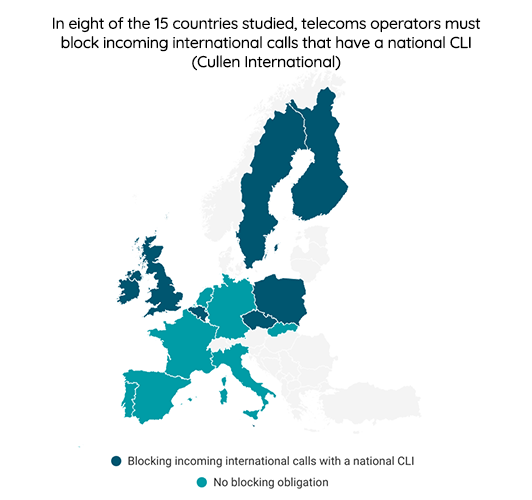Cullen International’s research shows that more national regulators across Europe are acting against spoofing practices, which can undermine end users’ trust in telecommunications services.
Fraudsters often illegally manipulate their calling line identifier (CLI) to make their calls or SMS appear coming from a number which their victims trust, while the call is really made from another number or even from abroad.
Telecoms regulators are using different tools to tackle this issue.
Out of the 15 European countries covered in this updated research, eight now impose obligations to block incoming international calls that have a national CLI.
These rules just entered into force in 2024 in Belgium, the Czech Republic, Ireland, Malta, and Sweden.

Six countries adopted a do-not-originate registry, collecting numbers that can never be used for outgoing calls.
France implemented the STIR/SHAKEN protocol in October 2024, to authenticate CLIs for VoIP calls using a national fixed number.
For more information and access to the benchmark, please click on “Access the full content” - or on “Request Access”, in case you are not subscribed to our European Consumer Protection (in Telecoms) service.
more news
11 February 26
Connected car services – when OEM connectivity triggers EU telecoms rules
Our new Explainer analyses connected car business models in relation to the EU’s EECC framework and the Open Internet Regulation, explaining how different models may be classified as internet access services, interpersonal communication services, and services consisting wholly or mainly in the conveyance of signals.
11 February 26
The DNA explained: more leeway for NRAs to impose symmetric access
Cullen International is issuing a series of analyses on different aspects of the Digital Networks Act (DNA) proposal. This report covers the symmetric access rules.
10 February 26
Global Trends in social media regulation
Our latest Global Trends benchmark analyses different aspects of social media regulation in key markets around the world.